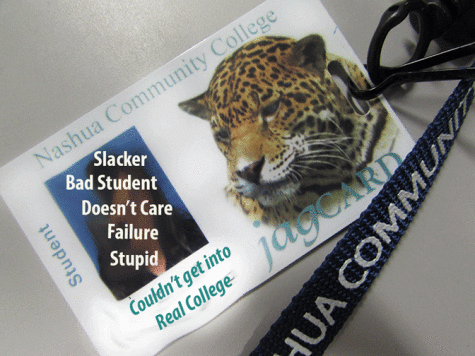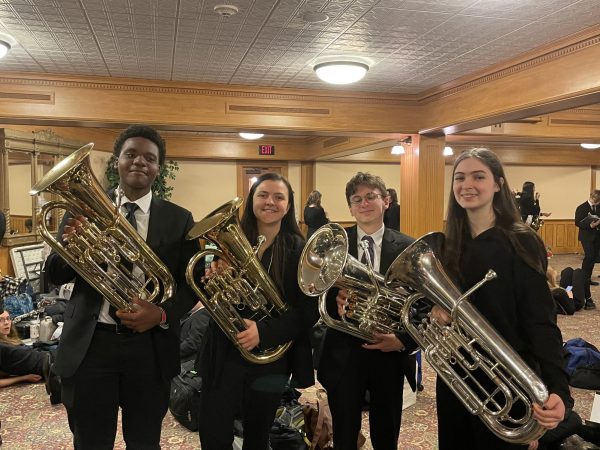Too cool for community school?
January 22, 2015
As high school juniors and seniors begin to think about college plans, many won’t consider community college as an option. The very idea of going to a community college is horrifying to some students, not to mention their parents.
The stigmas that surround community colleges are endless. Students tend to believe it will feel like high school, it’s not a real education, only slackers go to community college, et cetera. Students who are averse to attending a community college fear that they’ll still have to live at home, never get a good job, and most importantly, that their peers will see them as incapable of getting into college.
“I want to do something new and go someplace that’s not next to where I am now,” said Elizabeth Corsetti ‘15. “I don’t know much about [community college] but all I hear is the stigma behind it.”

But community college doesn’t deserve these misrepresentations.
“Community college is very similar [to traditional four-year colleges] in terms of the education you receive,” said guidance counselor Julie Sullivan. Students have an advisor, and pick classes from options for a specific degree or certificate. Day and night classes are also available to help fit the needs of students.
This option is appealing to students who are anxious and unsure of future plans. According to Sullivan, community college can provide a “gentle transition to college.” A community program also offers a less expensive way to receive education for those unsure of a career path and allows students to enter the workforce while still attending college classes. Students can get a feel for the college experience while still living at home, and some use community college as an inexpensive way to acquire their required general education courses before transferring to a traditional four-year college.
Ari Moraros ‘15 is attending Nashua Community College (NCC) next year. “[Nashua Community College] is local and close to home, I’m not ready to leave yet,” explains Moraros. “It has a lot to offer and I heard good things about it.”
The two major differences between a community college and a traditional four-year college are the lack of residence halls in a community college and the degrees received at both. Most community colleges don’t provide housing, which makes it the student’s responsibility to find an apartment or commute. Many students worry that they won’t feel a sense of community without campus housing. Some community colleges, though, help students find apartments together in order to build relationships.. As for degrees, the highest degree you can receive at a community college is an Associate (2-year) Degree, compared to the traditional Bachelor’s (4-year) Degree acquired at a four-year school. Community colleges also offer a variety of certificate programs.
“Sure, it’s community college but it’s still an education,” said Rob Albertine, a current student at NCC.
During his high school years at Alvirne High School, Albertine struggled to find something that piqued his interest. “I was the kind of student that would just show up, not pay attention, and pass the class.”
Graduation was fast approaching for the class of 2014, and Albertine was unsure if furthering his education was worth it. After most deadlines for college applications had passed, a close friend called him, asking about his plans for the future. That same day, he enrolled in Nashua Community College.
Months later, Albertine figured out what he wanted to do.
“I want to be a guidance counselor and help students,” he says. Albertine plans to shadow his middle school counselor, and transfer to the University of New Hampshire at the end of the year.
For Albertine, community college helped to find a career path before enrolling in a traditional school.
Despite stigmas surrounding the program, community college is a viable option that all students can consider while embarking on the college application journey. Even if community college isn’t your first choice, students have the option to transfer after receiving their general education requirements at a low cost. Instead of crossing community college off the list, students should take the time to learn about the benefits, and to see if a community college is the right fit for them.





![Steven Crooks grades a lab from his AP Physics 1 class. He is a new teacher, but already helping his students succeed with his grading philosophies and policies. “I want to see the thought process [in their work],” said Crooks.](https://cavchronline.com/wp-content/uploads/2024/01/Grading-Philosophies-300x225.jpg)












